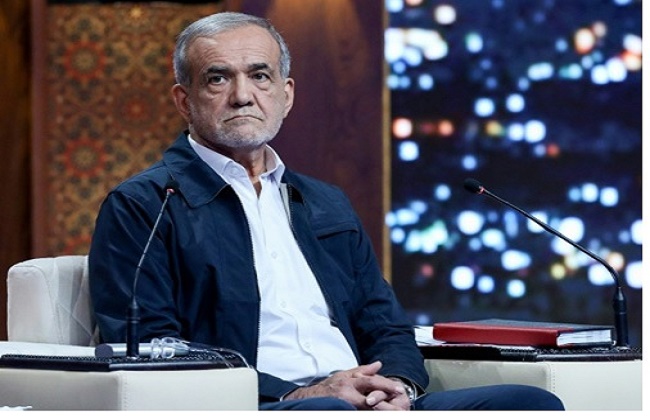
Masoud Pezeshkian, Iran’s sole reformist candidate, has risen from relative obscurity to leading the votes in the first round of the Islamic republic’s presidential elections, stunning supporters and rivals alike.
Pezeshkian, 69, won the largest number of votes in a first round on Friday that saw him face off against three figures from the conservative camp, all vying to replace late president Ebrahim Raisi who died in a helicopter crash last month.
He garnered more than 10,400,000 votes, while ultraconservative former nuclear negotiator Saeed Jalili came in second place with more than 9,400,000 votes.
The two will compete against each other in a runoff vote next Friday.
In the lead-up to the elections, Iran’s main reformist coalition threw its weight behind Pezeshkian, with former presidents Mohammad Khatami and the moderate Hassan Rouhani declaring support for his bid.
Pezeshkian’s push for Iran’s presidency comes amid heightened regional tensions over the Gaza war, a dispute with the West over Iran’s nuclear
programme and domestic discontent over the state of Iran’s sanctions-hit economy.
With Jalili now alone in facing the cardiac surgeon, Pezeshkian’s campaign would need to draw voters to the July 5 runoff in an election they’ve otherwise not taken part in as public anger hardens following years of Iran facing economic hardships and mass protests under its Shiite theocracy.
“Let’s look at it as a protest in its own right: A very widespread choice to reject what’s on offer – both the candidates and the system,” said Sanam Vakil, the director of Chatham House’s Middle East and North Africa program. “That tells us a lot about public opinion and apathy, frustration. It sort of brings it all together.”
Of the 24.5 million votes cast in Friday’s election, Pezeshkian got 10.4 million while Jalili received 9.4 million, election spokesman Mohsen Eslami announced. Parliament speaker Mohammad Bagher Qalibaf got 3.3 million, while Shiite cleric Mostafa Pourmohammadi had over 206,000 votes.
Iranian law requires that a winner gets more than 50% of all votes cast. If not, the race’s top two candidates advance to a runoff a week later. There’s been only one other runoff presidential election in Iran’s history: in 2005, when hard-liner Mahmoud Ahmadinejad bested former President Akbar Hashemi Rafsanjani.
